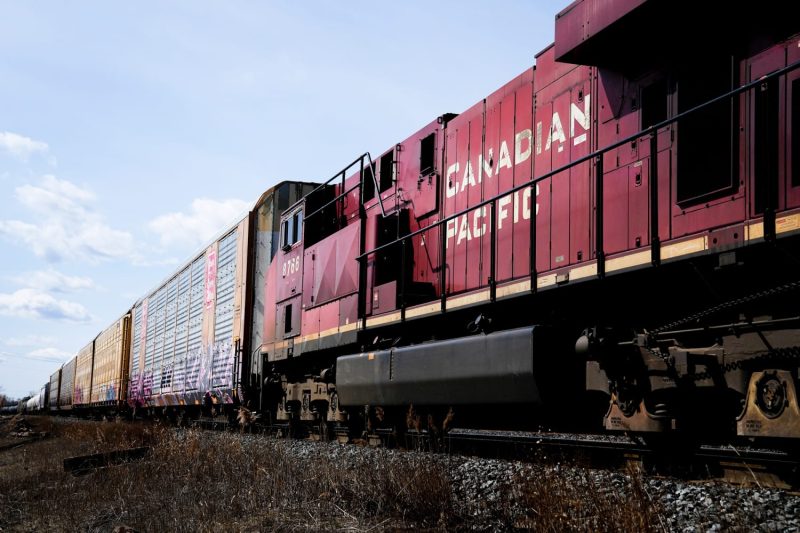The Possible Work Stoppage at Canada’s Two Largest Railroads Could Disrupt U.S. Supply Chain
The potential looming work stoppage at Canada’s two largest railroads, Canadian National Railway (CN) and Canadian Pacific Railway (CP), has sparked concerns and raised alarms regarding its potential impact on the U.S. supply chain. With negotiations between the rail companies and labor unions reaching a critical point, stakeholders are closely monitoring the situation to assess the potential disruptions and take necessary precautions.
The implications of a work stoppage at CN and CP are far-reaching and could have ripple effects across various industries, particularly in the United States, where these railroads play a critical role in transporting goods and commodities. As key conduits for cross-border trade, any disruptions in their operations could result in delays, shortages, and increased costs for businesses reliant on rail transportation for their logistics.
The potential consequences of a work stoppage at CN and CP are particularly concerning for industries that heavily rely on rail transport, such as agriculture, automotive, manufacturing, and energy sectors. The movement of essential goods like grain, machinery, automobiles, and raw materials could be significantly impacted, leading to supply chain bottlenecks and hampering production schedules.
For the agriculture industry, a work stoppage at the Canadian railroads could disrupt the timely delivery of crops, impacting farmers’ ability to transport their produce to market. This could result in spoilage, decreased revenues, and financial losses for agricultural businesses. Similarly, manufacturers dependent on timely deliveries of raw materials and components from Canada may face production delays, affecting their ability to meet consumer demand and fulfill orders.
The automotive sector, which relies on just-in-time manufacturing processes, could also be adversely affected by a potential work stoppage at CN and CP. Disruptions in the supply chain could lead to production shutdowns at assembly plants, causing significant production losses and impacting the entire automotive supply chain, including suppliers, dealers, and consumers.
Furthermore, the energy industry, which relies on rail transport for the movement of crude oil, refined petroleum products, and chemicals, could face logistical challenges if rail operations are disrupted. Any delays in the transportation of energy resources could impact refinery operations, distribution networks, and ultimately, consumer access to fuel and energy products.
In light of the looming threat of a work stoppage at Canada’s two largest railroads, stakeholders in the U.S. supply chain are advised to proactively assess their logistical dependencies, identify alternative transportation solutions, and establish contingency plans to mitigate potential disruptions. Collaboration between shippers, carriers, and other supply chain partners will be crucial in navigating any challenges that may arise due to the uncertainty surrounding CN and CP operations.
As negotiations continue between the rail companies and labor unions, the need for swift resolution and amicable agreements cannot be overstated. A prolonged work stoppage at CN and CP could have severe ramifications for the U.S. supply chain, underscoring the importance of proactive risk management and preparedness in today’s interconnected and interdependent global economy. The potential impact of a work stoppage at Canada’s two largest railroads serves as a stark reminder of the fragility of supply chains and the critical role that transportation infrastructure plays in enabling the seamless flow of goods and commodities across borders.




























